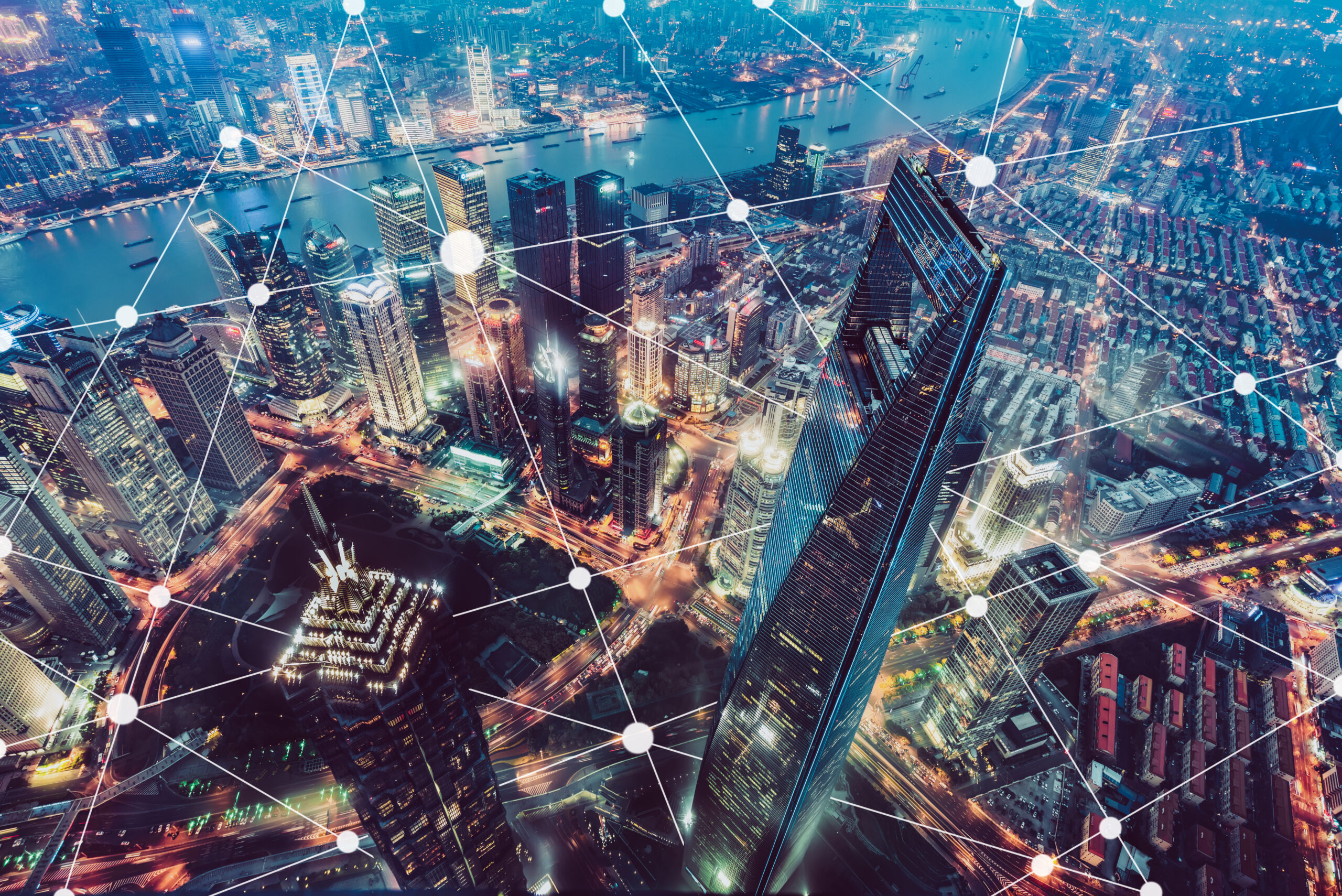March 11, 2020
Smartwatches and wearable technologies are popular consumer electronics because of the potential health benefits. These wearables can detect how often you move, your heart rate and sleep cycle and even connect through bluetooth to make phone calls and receive text messages. Smartwatches help consumers stay healthy and manage their time more efficiently — all from their wrist. While these users are conscious about their physical health, are they also maintaining their cybersecurity health as well?
The information a smartwatch gathers might not seem essential — it’s not like a user is sharing their social security number — but cybersecurity threats and hacks could happen. Device hacking can secure a lot of data about a person’s health, and potentially cause harm in unexpected ways.
“The information on a smartwatch, potentially monitoring a number of health parameters simultaneously (heart rate, arrhythmia, sleep cycle and possibly even blood glucose in the near future), would be sufficient data for a sophisticated machine learning algorithm to use in determining the likelihood of and latency to a major morbid or mortal event, such as a heart attack or stroke,” says IEEE Senior member Douglas Walled. “This data, if stolen from an individual, could be used against them via the refusal (or greatly increased cost) of health insurance. Worse, the silent collection of aggregate data like this from many individuals is exactly what would be required to create such a discriminatory algorithm in the first place.”
Essentially, a cyber hacker can take stolen health data and threaten to share information on unhealthy habits or medical illnesses to providers, which in turn, could drive up an individual’s health insurance costs.
Smartwatches and wearables are especially beneficial for elderly individuals who need more care and monitoring. Yet, older populations may be more cautious about these devices. “It is important that such systems are thought of for the elderly population, from the way information is presented to considering aesthetic and usability issues,” says IEEE member Anselmo Frizera Neto. “The dissemination of artificial intelligence tools using sensitive user data will depend on increasing user confidence and developing systems with greater reliability, considering the risks of unnecessary exposure of personal information.”
Healthy cybersecurity habits can deter potential data thefts. Because a smartwatch is an IoT-connected device, ensuring that you have a strong password is the first defense in protecting your privacy.
“People usually think they have good passwords, but in reality they are often not as creative or complex as they imagine,” says Walled. “An easy to remember phrase with a couple of consistent rules (always capitalize the first letter of a word, period between words, replace ‘a’ with ‘@’ and ‘o’ with ‘zero,’ end with ‘!,’ for example) will make for an extremely hack-resistant password, and it can be easy to remember without always reusing your dog’s name and the year you got him or her.”
A smartwatch provides a variety of valuable health data, that helps keep users on track and living their best life. Just because there is a potential for cyber attacks, doesn’t mean we should be ditching the device just yet. By ensuring the correct protection from cyber attackers is in place, users will reap the benefits in full.





 Meaningful Momentum or Running in Place?
Meaningful Momentum or Running in Place? AI Through Our Ages
AI Through Our Ages Liquid Infrastructure: Our Planet's Most Precious Resource
Liquid Infrastructure: Our Planet's Most Precious Resource The Impact of Technology in 2025
The Impact of Technology in 2025 Quantum and AI: Safeguards or Threats to Cybersecurity?
Quantum and AI: Safeguards or Threats to Cybersecurity? Why AI Can't Live Without Us
Why AI Can't Live Without Us Bits, Bytes, Buildings and Bridges: Digital-Driven Infrastructure
Bits, Bytes, Buildings and Bridges: Digital-Driven Infrastructure Impact of Technology in 2024
Impact of Technology in 2024 Emerging AI Cybersecurity Challenges and Solutions
Emerging AI Cybersecurity Challenges and Solutions The Skies are Unlimited
The Skies are Unlimited Smart Cities 2030: How Tech is Reshaping Urbanscapes
Smart Cities 2030: How Tech is Reshaping Urbanscapes Impact of Technology 2023
Impact of Technology 2023 Cybersecurity for Life-Changing Innovations
Cybersecurity for Life-Changing Innovations Smarter Wearables Healthier Life
Smarter Wearables Healthier Life Infrastructure In Motion
Infrastructure In Motion The Impact of Tech in 2022 and Beyond
The Impact of Tech in 2022 and Beyond Cybersecurity, Technology and Protecting Our World
Cybersecurity, Technology and Protecting Our World How Technology Helps us Understand Our Health and Wellness
How Technology Helps us Understand Our Health and Wellness The Resilience of Humanity
The Resilience of Humanity Harnessing and Sustaining our Natural Resources
Harnessing and Sustaining our Natural Resources Creating Healthy Spaces Through Technology
Creating Healthy Spaces Through Technology Exceptional Infrastructure Challenges, Technology and Humanity
Exceptional Infrastructure Challenges, Technology and Humanity The Global Impact of IEEE's 802 Standards
The Global Impact of IEEE's 802 Standards Scenes of our Cyber Lives: The Security Threats and Technology Solutions Protecting Us
Scenes of our Cyber Lives: The Security Threats and Technology Solutions Protecting Us How Millennial Parents are Embracing Health and Wellness Technologies for Their Generation Alpha Kids
How Millennial Parents are Embracing Health and Wellness Technologies for Their Generation Alpha Kids Space Exploration, Technology and Our Lives
Space Exploration, Technology and Our Lives Global Innovation and the Environment
Global Innovation and the Environment How Technology, Privacy and Security are Changing Each Other (And Us)
How Technology, Privacy and Security are Changing Each Other (And Us) Find us in booth 31506, LVCC South Hall 3 and experience the Technology Moon Walk
Find us in booth 31506, LVCC South Hall 3 and experience the Technology Moon Walk Virtual and Mixed Reality
Virtual and Mixed Reality How Robots are Improving our Health
How Robots are Improving our Health IEEE Experts and the Robots They are Teaching
IEEE Experts and the Robots They are Teaching See how millennial parents around the world see AI impacting the lives of their tech-infused offspring
See how millennial parents around the world see AI impacting the lives of their tech-infused offspring Take the journey from farm to table and learn how IoT will help us reach the rising demand for food production
Take the journey from farm to table and learn how IoT will help us reach the rising demand for food production Watch technical experts discuss the latest cyber threats
Watch technical experts discuss the latest cyber threats Explore how researchers, teachers, explorers, healthcare and medical professionals use immersive technologies
Explore how researchers, teachers, explorers, healthcare and medical professionals use immersive technologies Follow the timeline to see how Generation AI will be impacted by technology
Follow the timeline to see how Generation AI will be impacted by technology Learn how your IoT data can be used by experiencing a day in a connected life
Learn how your IoT data can be used by experiencing a day in a connected life Listen to technical experts discuss the biggest security threats today
Listen to technical experts discuss the biggest security threats today See how tech has influenced and evolved with the Games
See how tech has influenced and evolved with the Games Enter our virtual home to explore the IoT (Internet of Things) technologies
Enter our virtual home to explore the IoT (Internet of Things) technologies Explore an interactive map showcasing exciting innovations in robotics
Explore an interactive map showcasing exciting innovations in robotics Interactively explore A.I. in recent Hollywood movies
Interactively explore A.I. in recent Hollywood movies Get immersed in technologies that will improve patients' lives
Get immersed in technologies that will improve patients' lives